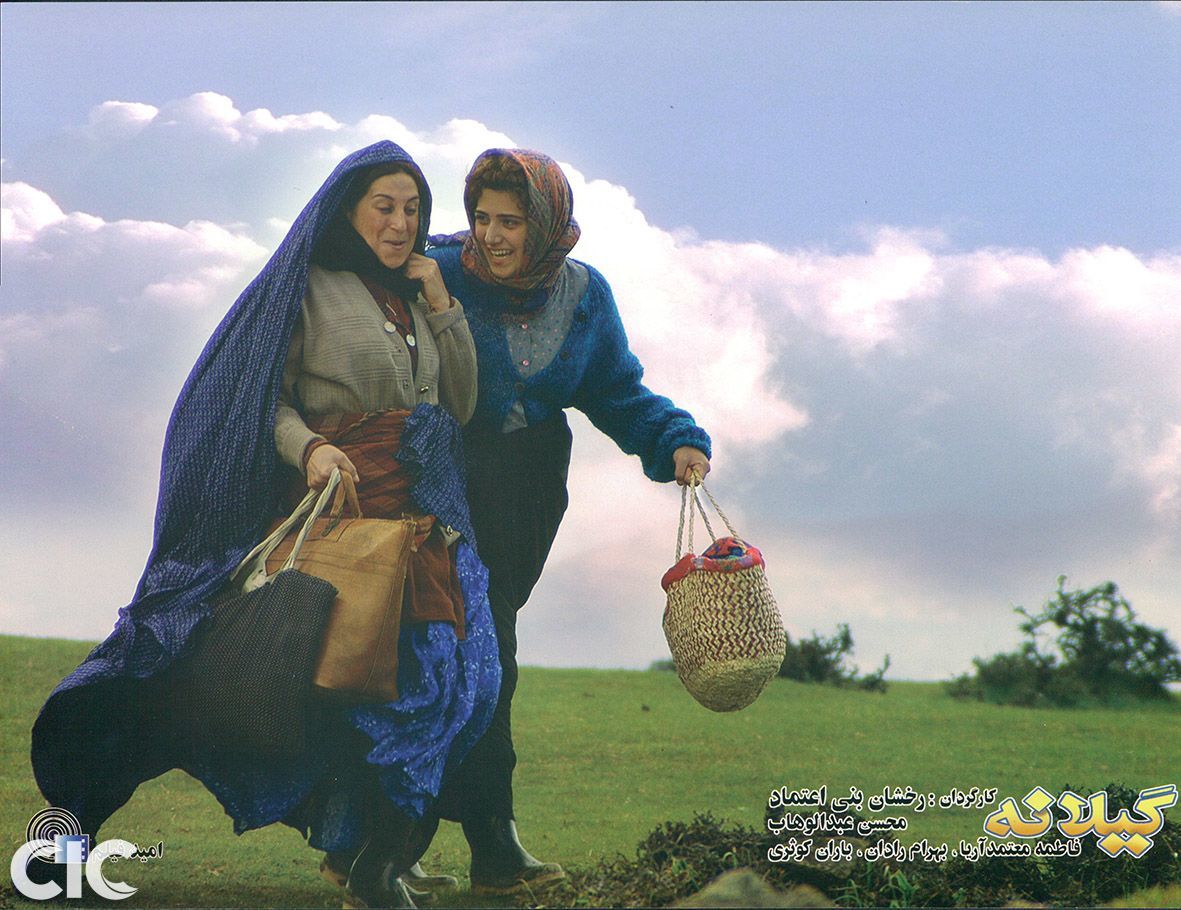By Chlotrudis Independent Film Society
Rating: 3 cats
Director: Mohsen Abdolvahab | Rakhshan Bani-Etemad
Starring: Bahram Radan | Fatemeh Motamed Arya

Country: iran
Year: 2005
Running time: 84
IMDB: http://www.imdb.com/title/tt0450428/combined
Bruce says: “GILANEH is a grim, unsettling portrait of an Iranian mother who sees her family torn asunder by war. The war is the eight year Iranian-Iraqi war. The first half of the film takes place during the last days of the war, on Iranian New Year’s eve, March 20, 1988; the second half fifteen years later to the day, ironically the time of the US invasion of Iraq. The location is a village between the Iran-Iraq border and Teheran.
“Gilaneh has two children. Her daughter has married ‘a stranger’ which means he is someone outside their village of Espili. He has disappeared and Maygol is visiting her mother worried to death about her future and her pregnancy. She wants to return to the city so her mother agrees to accompany her. Meanwhile Gilaneh’s son Ismael is leaving home to fight the war. Gilaneh prays that he will come to no harm. En route to Teheran they notice people are fleeing the city for the countryside where they feel less of a target. Gilaneh and Maygol walk on cow paths, country roads and hitch a ride in the back of a truck before they get to the main road where a bus will take them to the city. The nighttime cinematography with fog, distant hills and lonely headlights pushing forth is particularly beautiful. When the women get to Teheran, they discover the furniture has been removed from Maygol’s house and her husband has been recruited into the army. Shells are bursting outside the front door.
“Fifteen years later Ismael is thrashing around the floor of the village hut demented and tormented by residual effects from Iraqi chemical warfare. Gilaneh lovingly carries him from one room to another, in between doing her household chores and running a small roadside restaurant. She is hunched over, shattered, haggard, hopeless. News of the U. S. invasion of Iraq is on the TV.
“Fatemah Motamed-Aria’s portrayal of Gilaneh is heartbreaking. Many strange moments occurred in the film such as Gilaneh putting her boots under the leaves of a large plant and Gilaneh asking for her daughter’s wedding ring. When asked about these things, the director explained exactly how they were part of the Iranian culture. Other moments were attributed to customs reserved for observing Iranian New Year’s. In viewing world cinema I wonder how many cultural references appear on screen unrecognized by those from other countries. 3 cats”
